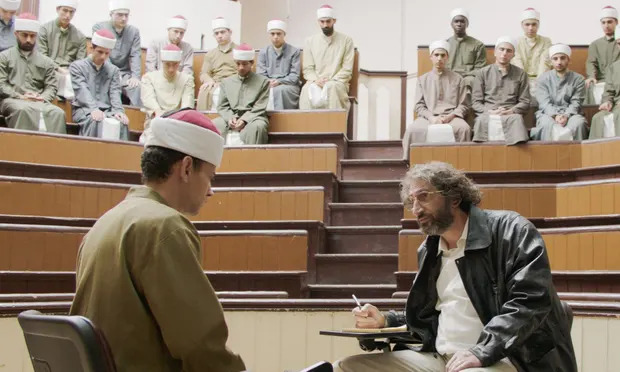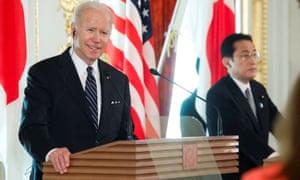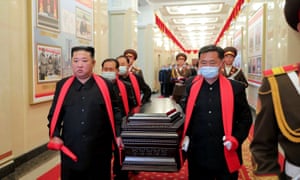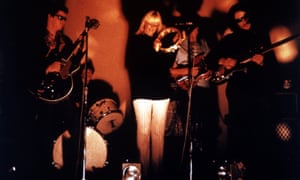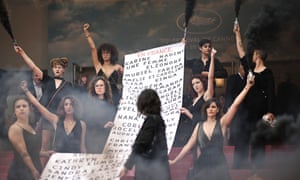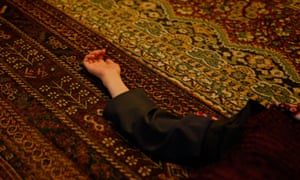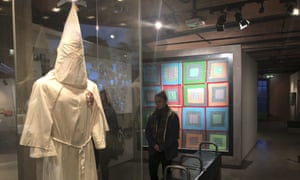Egypt’s religious and secular institutions both breed mistrust in Tarik Saleh’s superbly realized paranoid nightmare.
–
Tarik Saleh is the Swedish-Egyptian director who made The Nile Hilton Incident in 2017, a shrewd, dyspeptic movie about the official corruption in Egypt that triggered the Tahrir Square uprising. Now in an era when the Arab spring has arguably become a bittersweet memory, he has brought to the Cannes competition this watchable conspiracy espionage-drama satirising the corruption of church and state. There’s an intriguing mix of scorn and paranoia here, together with a yearning for individual figures of decency halfway down the food chain – it reminded me of John le Carré.
Adam (Tawfeek Barhom) is a fisherman’s son in the northern town of Manzala who is overjoyed to receive news from his local imam that he is getting a lavish state sponsorship to study Islamic thought at Cairo’s internationally prestigious Al-Azhar University. This is a dizzying honour. Once at the university, he is overawed by the discipline, the rigour and the atmosphere of piety but disconcerted also when a fellow student offers him a cigarette – of all the louche things – and invites him out for a secular night on the town. Their seat of learning is stunned when its ageing chief imam drops dead of a heart attack while addressing the student body, and straight away there is political jockeying from the other imams as to who is take over a position of enormous political influence.
Adam’s own bewilderment and distress is compounded when he witnesses his new student pal being murdered by masked assailants, and soon he is contacted by a dishevelled and cynical intelligence agent, Colonel Ibrahim (played by Fares Fares, the cop in The Nile Hilton Incident) who makes something horribly clear. Adam’s dead pal was an informant being “run” by the state security apparatus, covertly reporting back to the government on the imams’ subversive political views.
This dead young man, like Adam himself, was the recipient of a state scholarship given to obedient provincials who will take orders from their real masters. Now Adam must work as a spy to ensure that the government’s favoured candidate gets the top job and if things go wrong there is no guarantee Adam won’t wind up like his friend. Saleh creates very tense scenes in which Adam has to further infiltrate various cliques and in-crowds at the university, get their trust and assuage their suspicions by conniving in violent acts against their enemies – and all this in a seat of religious learning.
It’s a movie that is boldly anti-clerical, juxtaposing the spectacle of faith with a hidden reality of corruption and hypocrisy – although in the final act I sensed that it perhaps did not quite have the courage of its satirical convictions. The religious authorities in Egypt may be mollified by this film’s final implication that the secular state is marginally more institutionally corrupt than the religious establishment. It’s a bold piece of work nonetheless.
Topics









